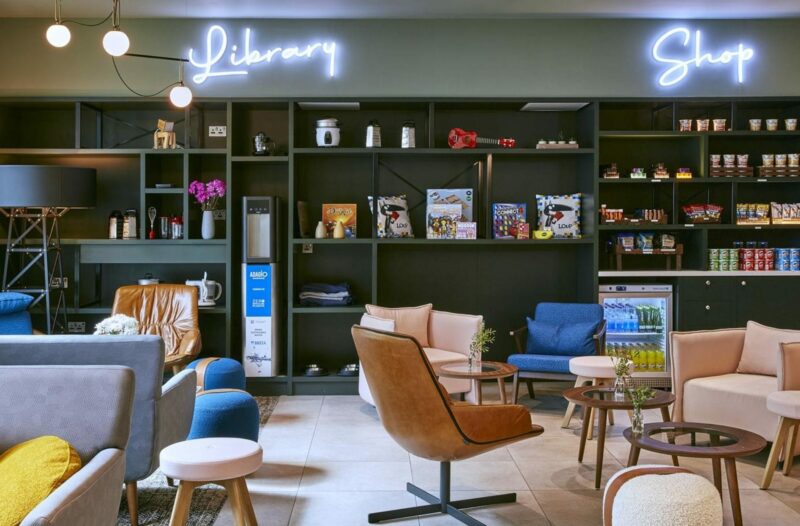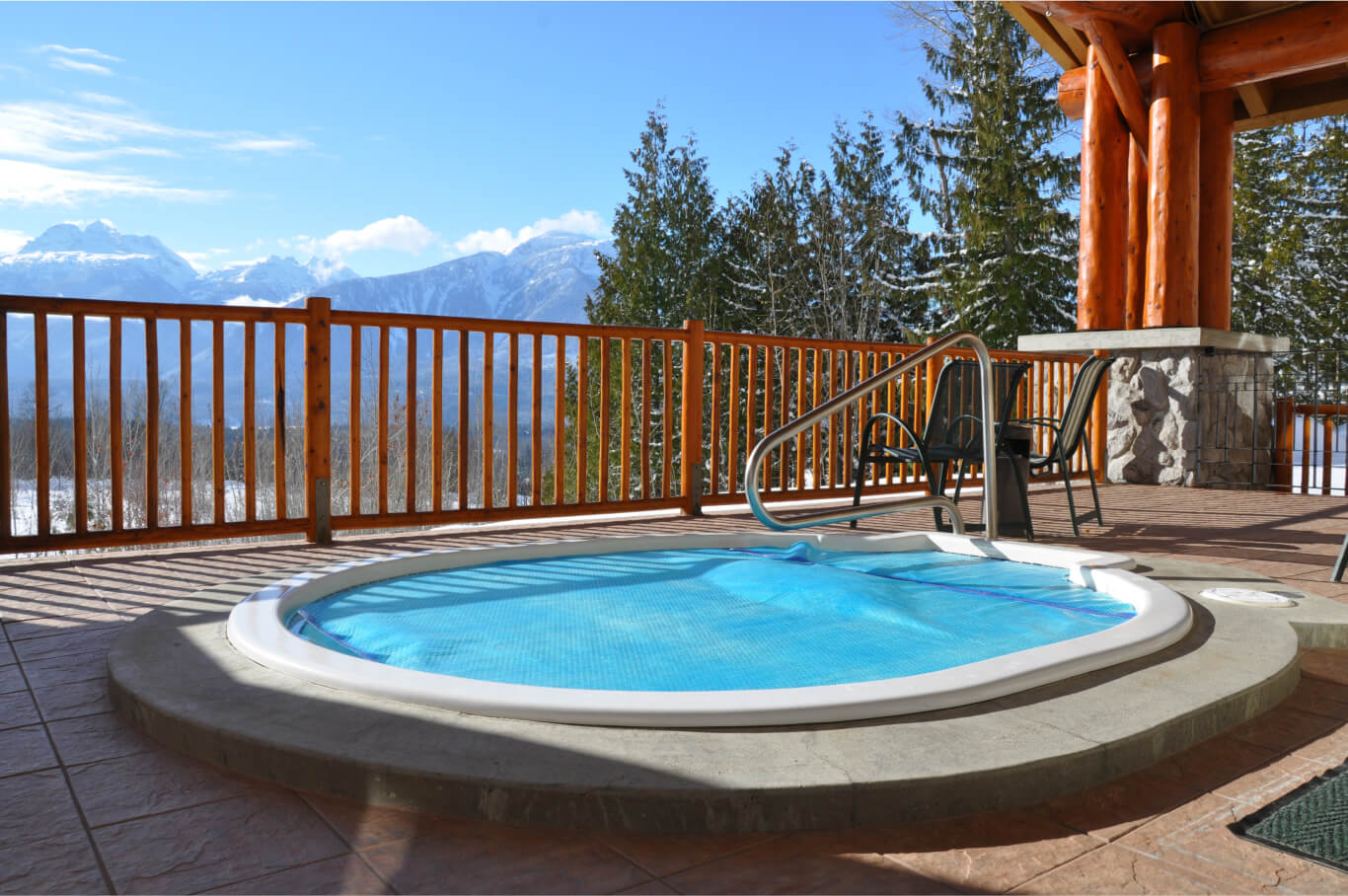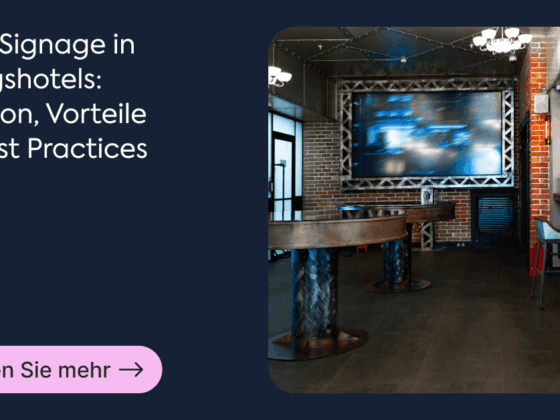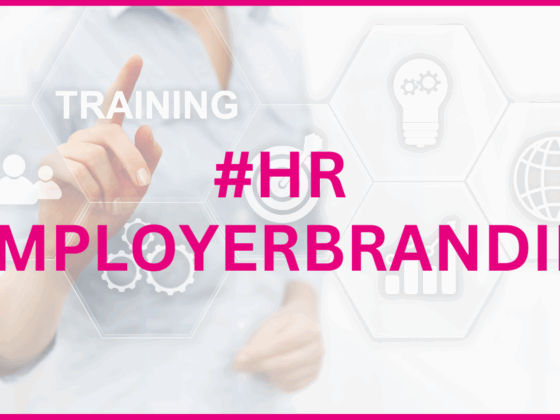“I have a 32-year track record of building global hotel and hospitality brands during periods of rapid growth and almost retired before I started talking with Coast Hotels,” Brigitte Diem-Guy told me. “When I started talking with their executive team before I joined, it became very clear they had a vision for rapid growth. It excited me so much I came out of retirement to join them in April of 2022.”
In this case study, we’re going to look at how Brigitte and her teams have implemented a guest feedback management program with Shiji ReviewPro and what they learned along the way.
In addition to Brigitte, I spoke with people across the organization to get their perspective on this initiative, including:
- Nooshi Akhavan, Director, Revenue Performance
- Linda Hagen, Director, Brand Engagement & Auditing
- Emma McDonald, General Manager, Coast Tsawwassen Inn
- Dan Reid, General Manager, Coast Coal Harbour Vancouver Hotel by APA
The Coast Hotels story
Coast Hotels owns, manages, and franchises properties in cities large and small, as well as in resort destinations throughout British Columbia, Alberta, Saskatchewan, Yukon, Alaska, Washington State, California, and Hawaii. Coast Hotels is headquartered in Vancouver, British Columbia, Canada, with a satellite office in Seattle, Washington, USA. As one of North America’s fastest-growing and one of Canada’s largest hotel brands, they credit their growth to a commitment to exceptional service, prime locations, value, and guest satisfaction.

“We’re a small chain located mainly in the Pacific Northwest,” Brigitte said. “But we’re operating with a rapid growth vision: to expand from the over 4,200 rooms we have today to 10,000 rooms 5 years from now.”
The brand prides itself in the range of diversity and one-of-a-kind properties in its portfolio. “In Vancouver, our hotel is a beautiful glass building downtown, while our Dawson City hotel looks like a gold rush saloon.”

Brigitte’s journey to guest experience leadership
As head of revenue strategies and communication for Coast Hotels, Brigitte Diem-Guy may seem like an unlikely person to lead guest experience management, but if you talk with her for a few minutes, you can see she’s the perfect person.
Much of how she thinks about service comes from her childhood in Switzerland, where she started working with her father’s beverage distribution company at the age of five.
“He was the original Uber Eats,” Brigitte recalled with a laugh. “I remember holding the door open for him when he was delivering to private homes and restaurants in the 1960s.”
“I grew up in this entrepreneurial environment where customer experience and satisfaction were critical to our family’s survival. My dad always said if we don’t deliver on customer service we won’t have dinner. That stuck with me.”
The Coast Hotels brand promise to guests
Coast Hotels aims to leverage its unique, varied collection of properties and locations to delight its guests.
“Our tagline is ‘Refreshingly Local’,” Brigitte said, which supports the company’s brand promise.
“We don’t want to be a group of branded box hotels. We strive for every guest to experience the destination the way locals do and what today’s travelers want. We want to help our guests live like a local – but provide a level of safety, cleanliness, and brand touch points they can rely on regardless of which location they’re staying at.”
Coast employees – which they call “Ambassadors” – provide recommendations based on what they personally enjoy about their city. “We want to be in a niche that big brand boxes can’t provide, that Airbnb can’t provide. We can provide reliable cleanlinessand safety but also a local experience. Our intention is to provide ‘refreshingly local’ experiences.”
Agile brand standard development
While Coast Hotels has operations leaders in their corporate office that are in charge of brand standards, they don’t want to just dictate those brand standards from the corporate office.
“We recently ran a workshop at our brand conference and shared with our teams our desire to update our brand standards to stay relevant and attract new guests. We wanted to do that in partnership with them because they are the ones in front of their guests and will have more insights because of that. So we put together a working group that included a cross-section of our hotels.
“We invited managers from both the franchise and owned properties to join us for three days and go through every touchpoint and share what they think we should deliver across the brand. The experience showed me how entrepreneurial and collaborative our brand is. We got input and participation that I haven’t seen at big hotel brands. They may have client advisory groups but at the end of the day, they meet once a year and have to make decisions that work for thousands of hotels around the world. That doesn’t work for a traveler like me who wants a hotel stay to feel special.
“Our goal is to create a warm and welcoming environment for all of our guests regardless of where they’re coming from. We need to anticipate guest needs and go above and beyond their expectations. That’s something I learned growing up from my dad.
“We want our guests to have memories from their stay. We want to create an environment conducive to providing memorable stays. We want to provide individualized, caring environments where our ambassadors can deliver memorable hospitality.
“Our Ambassadors take great pride in developing relationships with our guests and treating everyone with kindness and empathy. A lot of people overcomplicate hospitality, but it’s really all about providing an experience that’s similar to inviting someone to your house and making them feel welcome.”

Why Coast Hotels invested in online reputation management
“Online reputation management is such a critical function in the hotel industry,” Brigitte observed. It emerged from the rise of popularity and social networking and travelers sharing their experiences with everyone – whether it was good or bad. “Travelers increasingly use digital channels – not just OTAs but TripAdvisor and Google – to share their experiences with others. That’s only increasing with time.”
“Our online reputation is really the perception of our brand. It’s critically important for brand affinity. It helps us attract new guests and helps us create trust and credibility and improve our brand image. It also gives us an opportunity to process all feedback – positive and negative – and make changes to deliver an even better guest experience. This is why it’s so important to monitor and manage online reputation and respond to guest feedback promptly and efficiently.
“I’m from Switzerland. My middle name is efficient,” Brigitte said with a laugh. “When I see something happening manually I ask myself how could we do it more efficiently? Is there software for this?”
“Without Shiji ReviewPro, monitoring and managing guest feedback was extremely time-consuming and inefficient for our operators and our corporate brand strategy team.”
This was true on the property level as well, Coast Coal Harbour Vancouver Hotel by APA GM Dan Reid recalled. “It was a laborious process because we had to log into all the different sites individually. Sometimes this would get forgotten, and because we had so many reviews coming in. Missing days meant it was so hard to catch up. Too many times, we ended up ignoring reviews because there were too many to respond to.”
“Before Shiji ReviewPro, I found it nearly impossible to track, let alone respond to them all,” added Emma McDonald, General Manager of the Coast Tsawwassen Inn.
Linda Hagen, Director, Brand Engagement & Auditing, recalled processing guest feedback manually before each quality audit. “It took at least half an hour before each meeting I had with our hotel teams to build charts in a spreadsheet. It wasn’t something I looked forward to, and I realized it wasn’t a good use of my time.” And that was only increasing. “We saw the volume of online feedback increase significantly with time – people felt free to share their feedback online and it became easier and easier for them to do so.”
All of this meant a lot more pressure on the Coast team.
“It would have taken an army of people to go into each channel and try to aggregate and interpret the data on a corporate level,” Brigitte added. “Aggregating the data is so important because insights from that data are gold. We needed to find a way to eliminate inefficiency in the process because I’d rather our hotel teams spend time talking with guests than trying to track down feedback on every channel.
“Shiji ReviewPro allowed us to eliminate the manual process of going one channel at a time and let our teams focus on the guest experience and delivering on the brand promise. Our hotel teams have a business to run. They have people coming to their house, so to speak. They can’t spend time hunting down feedback, and technology is well suited to not only collecting but processing the feedback for insights.”
Making this process easier was important because as Emma shared, it’s part of providing hospitality. “Your guests have taken the time to write you a review, so you should be able to make the time to respond to it.”
The shopping process
Coast Hotels went through a thorough evaluation process when they recognized they needed technology to manage guest feedback.
“There were three potential systems we compared and our company involved a lot of disciplines in the comparison. Our brand engagement, commercial strategy, IT, and executive teams were involved, and each discipline had areas they were scoring and evaluating the system on,” Brigitte noted.
“As an example, one of the things each team wanted to understand is what support and training looked like. Others wanted to know how easy implementation was, and what integration capabilities existed. Competitive intelligence was also key. We are very competitive people and want to see what others are doing and how we can become better in each market.
After an exhaustive evaluation, Shiji ReviewPro came out as the winner.
“It was like someone had waved a magic wand and granted my wish to make the process of collecting and processing guest feedback so much easier,” Linda recalled.

Hiring someone to lead adoption
“Once we made the decision to work with Shiji ReviewPro, the first thing I decided to do was hire someone at the corporate office to support the implementation,” Brigitte shared. “We hired Parijat Gupta as our Social Media & Online Reputation Manager, and she has helped us make sure the implementation plan was in place, a training process was developed and implemented, onboarding was easy, and the initiative was promoted to drive adoption and use of the system.”
“I wanted to internalize our reputation management and social media instead of working with an external agency because I’m a strong believer that only someone in-house can represent our brand as we need it to.”
Having Parijat on the team has been crucial to the program’s success. “She has been a major driver of adoption and makes sure there’s no friction in the process. She’s always asking how can we make this better. She’s driving adoption by training new hires on how to use this system. When a hotel hires a new front desk manager, they call her and she provides training and insights on how to best use the platform.”
Onboarding Shiji ReviewPro
Coast Hotels first signed a contract for three hotels as a pilot test. “We always begin any new technology implementation with a couple of hotels that we own to make sure that users are happy and it delivers the results we’re looking for,” Brigitte said.
“We found our initial implementation went quickly and everyone was confident in using it. We completed a couple of virtual trainings. With Parijat leading the initiative, she made sure our Ambassadors were using the system as intended. That’s why I suggest every company thinking about guest feedback management to have a corporate-level role that is passionate about this and drives adoption of processes and technology.”
Dan Reid, General Manager of Coast Coal Harbour Vancouver Hotel by APA, found this true on the property level as well. “It was the easiest introduction of any new system I’ve seen. We had one training session and then everyone on our team felt ready to use the Shiji ReviewPro platform. It was so intuitive.”
The importance of driving adoption
Focusing on driving adoption is the most important part of a project like this, Brigitte shared.
“You can give someone a tool, but if you don’t communicate why they should use it and what’s in it for them, they will never touch it because they’re busy.”
After the pilot hotels were onboarded quickly and easily, Brigitte wanted to get the franchise hotels on board.
“I found public recognition to be so important for driving adoption. That’s why I call out our leaders that outperform in guest satisfaction. We created and gave out an award this year at our brand conference based on the Global Review Index. I’d rather use a carrot than a stick for change management. I find it works better. Getting after people on why they haven’t taken action isn’t nearly as effective. I find it’s far more effective to explain what’s in it for them if they use a system. At the end of the day, all of our operators are hospitality people and they want to provide a good experience at their hotels.”

Results today
Today, with Shiji ReviewPro, Coast Hotels is seeing benefits across their business.
Rapid understanding of guest satisfaction
“Shiji ReviewPro is so helpful because you have a dashboard and heat maps that show what’s trending,” Brigitte said. “It shows how we are performing relative to our brand standards in areas such as cleanliness. It shows ways that we can improve even further.”
For Nooshi Akhavan, Director, Revenue Performance, value perception is especially important. “Everyone on my team looks to see how guests perceive the value they’re receiving for the dollars spent. We want to make sure that we have the right price point in the market for each hotel and that the value is as expected. If we see the value ratings drop, then that means we’re overcharging and not offering the value we want to our guests.”
Analyzing performance in each area of the business
The Coast team uses Shiji ReviewPro to understand performance and guest satisfaction across the business, including before the guest arrives on the property.
“Interacting with our call center is part of the experience, especially for a first-time Coast Hotel guest,” Nooshi said. “89% of our hotels redirect their call to the call center, and our call center manages it as if they’re on-site at each property. So when guests are talking about their experience booking their reservation, we need to know about it.
“If a guest shares about the service they received on a booking channel or a call center, then that highlights it for me and we can use it to become better. Everybody always has room for improvement.”
From sporadic responses to near-total response rate
Speed has improved as well. “Things get flagged right away and our reaction times are faster to fix things too,” Nooshi added.
In a world where service quality is tied to response time, that is important.
Time savings
“I’ve watched people try to manage their reputation manually,” Brigitte says. “I’ve even run into some people in the past that tell me very proudly the first thing they did when they got to their hotel was logged into TripAdvisor and then log out and go to the next site and then three hours later they’re still logging on and off of these sites. But during that time guests were checking in and out and that was time that they should have spent with their guests listening to their experience or thanking them for staying at the hotel.
“Hotel leaders need to be visible to both their teams and the guests but they were spending so much time in their offices logging into these different sites to manage guest feedback before.”
“A happy guest is a repeat guest, but a super happy guest is someone that will talk to their friends, families, and colleagues about your hotel. Customer advocacy leads to faster organic growth, lower customer acquisition cost, and higher customer lifetime value. Ultimately, it leads to long-term sustainable revenue growth for every hotel. It’s not difficult to understand but you need to give people a tool to free them up to spend time on delivering the brand promise.”
Dan estimates this saves him and his team at Coast Coal Harbour Vancouver Hotel by APA at least half an hour each day now. “It’s really easy for us now.”
Emma agrees. “Now I am seeing all of them for the Coast Tsawwassen Inn because they’re all there on one platform and it’s super easy for me to go and take a look. Now it’s just part of my daily routine, and because it’s so easy to do and I’m actually enjoying being able to read all the reviews.”
Better quality audits
The guest intelligence gathered by Shiji ReviewPro helps Linda be better prepared when she begins the quality audits for a hotel.
“We have a whole bunch of insights from guest feedback online that lets me know whether or not a hotel is doing well operationally. I have an idea going in whether this is a high-functioning hotel or whether they need a little coaching,” she said.
Competitive intelligence
Getting insight into the competitive landscape is a benefit that resonates with users across the company.
“We have a lot of systems that show data such as occupancy and rates at other hotels,” Dan shared. “This is the first tool that gave us insight into what guests at those other hotels were saying. It’s fascinating because we can see not only the overall satisfaction score but the specific things guests like or dislike at those other properties.”

Pricing power
As head of revenue strategies, Brigitte knows a higher reputation provides pricing power. While the program is just getting started, she’s already seeing how individual hotels are making progress against their competitors in each local market.
“We look at that data and see how we can improve, but we also see where we may be able to raise rates a bit.
“Shiji ReviewPro has this great metric called the Competitive Quality Index that shows where your hotel is sitting among its competitive set. It’s the most valuable data that Shiji ReviewPro provides in my opinion. You can look at a market like Victoria and compare this guest satisfaction data with our STR comp set. In my experience, if you create a better than average guest experience, you can also earn higher rates for doing that.”
This is why focusing on increasing perceived value is so important, Nooshi says. “The price point is less important to many guests than what is included in that. Sometimes adding value could be as simple as including parking or breakfast in the rate. This is why knowing our customer demographics and what is important to them is so important – and Shiji ReviewPro helps us understand this.”
Higher guest satisfaction
While the pandemic was an anomaly, Brigitte and her team use Shiji ReviewPro’s historical guest satisfaction scores to compare to 2019 to understand how they are tracking against pre-pandemic expectations and satisfaction levels. “Every hotel chain wants to get to 2019 as fast as possible.”
“With Shiji ReviewPro, we can look to see not only how we’re doing recently, but how we compared to our performance back then. Across the brand, we’ve seen a 3% year-over-year increase in guest satisfaction already, and we’re just getting started. The real power is in looking at the data and identifying ways to improve and keep driving those scores up. It’s nice to look at the data but you have to use it to see the impact!”
Data-driven conversations with stakeholders
With Shiji ReviewPro, the Coast team is empowered to have data-driven conversations with stakeholders.
“Without data, I just have my opinion,” Nooshi shared. “But with guest data from Shiji ReviewPro, I have evidence to back up requests and recommendations I’m making to owners. It’s a huge eye-opener.
“For example, I’ve seen how reviews have guided our breakfast offering from a full hot buffet in the summer to a luxury cold buffet. It was what guests really wanted, and it saved us money.”
Inspiring and motivating staff
In a world where staffing has been a challenge across the industry, feedback collected through Shiji ReviewPro plays a key role in inspiring Coast Ambassadors.
“Shiji ReviewPro helps me motivate our frontline staff by sharing the feedback we receive,” Emma shared. “It’s very easy for me to pull our reviews from across the web, and I’m able to show them how the work they’re doing is making a difference for our guests. That feedback doesn’t always make it to them otherwise.”
“Our frontline staff have a lot of flexibility in how they engage with guests, and we’re able to see the impact of providing great service. It’s become fun for our staff to track our progress.”
“We’re all working in hospitality because we like working with people, and we want to provide great hospitality to our guests. Because of that, we all want feedback. We want to hear that guests came and they loved it, and they thought the staff was amazing and friendly and helpful and we made them feel good. Hearing this makes my staff feel good, and it’s been great for engagement.”
Empowered to test and innovate
“Our ownership company is from Japan, which is obviously a very advanced culture technologically,” Brigitte shared in closing. “They have massive hotels in Japan – including one that just opened with 1,700 rooms. They’re big believers in innovation and testing things, seeing how guests respond, and this is where Shiji ReviewPro becomes so important.
“Our teams can test something and then with a click of a button see how guests felt about it. Shiji ReviewPro is especially helpful for this because of its semantic analysis which allows you to click into concepts like technology and then drill down and understand specific things people like or dislike about it. By working with Shiji ReviewPro, we’re able to try things rapidly and learn and improve.









